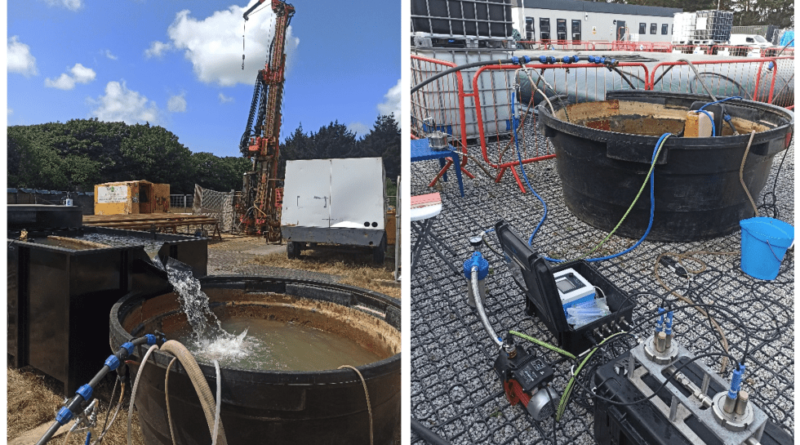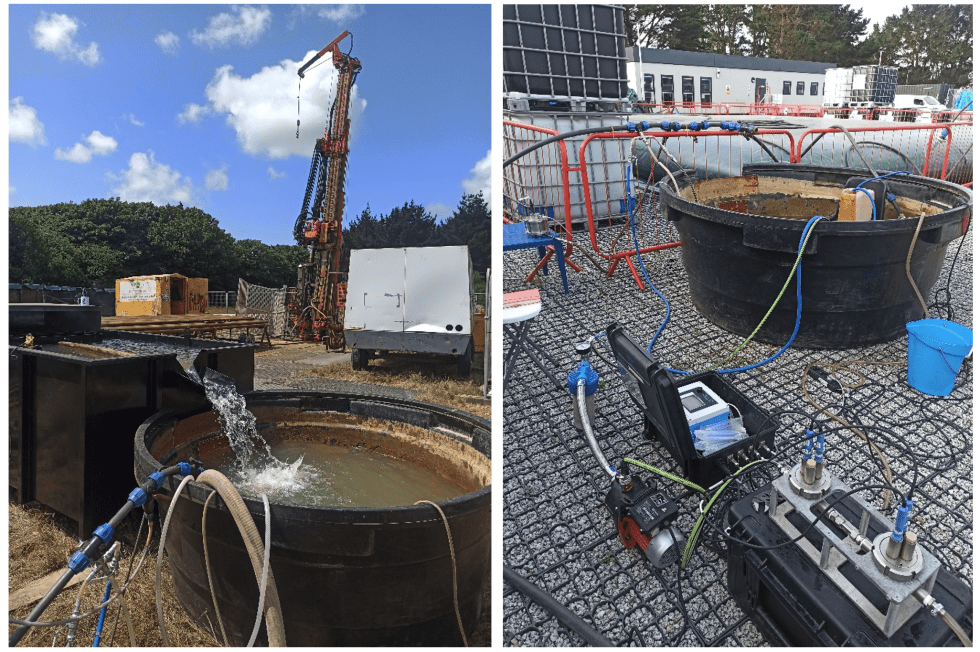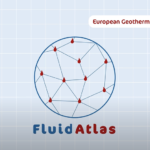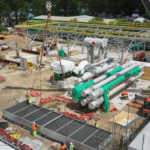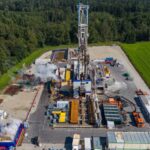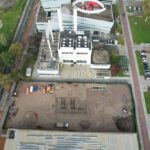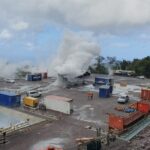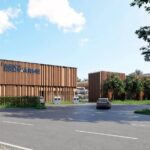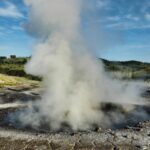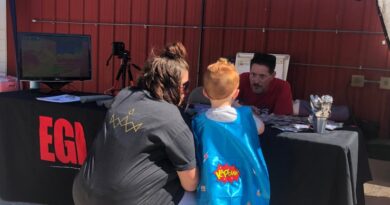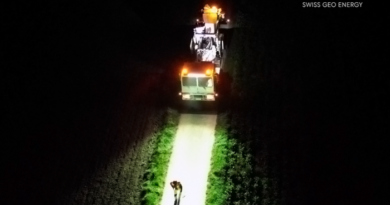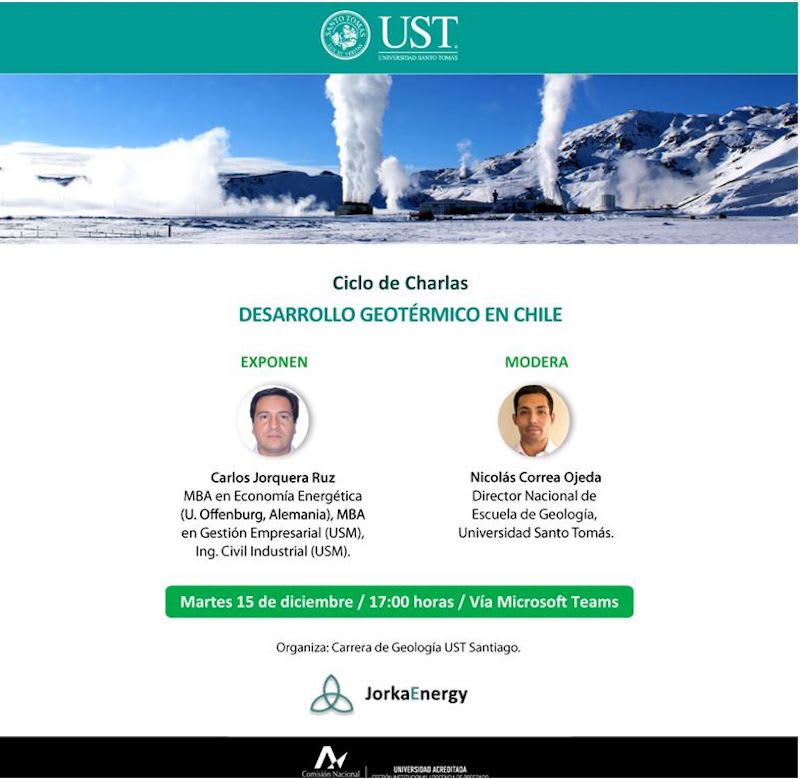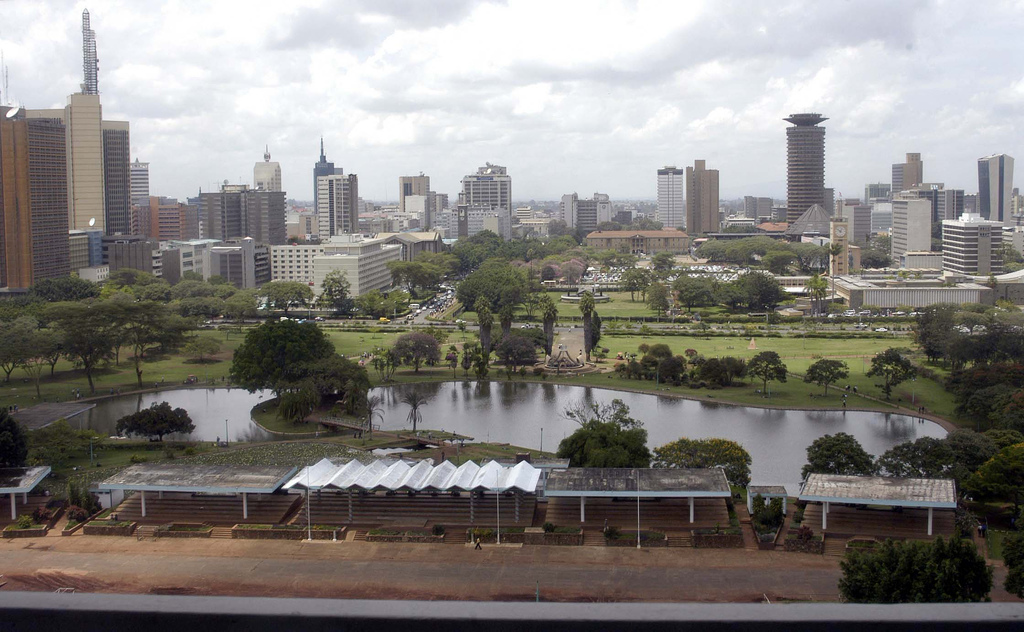CRM-geothermal completed fluid testing work in Cornwall, UK
Energy Disrupter
The EU-funded CRM-geothermal project has completed tests at the Cornwall site in UK to gather data on critical raw materials extraction from geothermal fluids.
The EU-funded CRM-geothermal project has announced the completion of fluid test work in Cornwall, UK as part of its endeavour to develop a ground-breaking technology-solution combining the extraction of critical raw materials and energy from geothermal fluids.
Throughout June and July 2023, the CRM-geothermal project conducted a comprehensive series of investigations and borehole testing in Cornwall. These tests aimed to gather crucial data regarding the reservoir properties and characteristics of geothermal fluids deep underground.
This data is of paramount importance for the potential future hosting of a demonstration extraction plant at United Downs, Cornwall. The pilot plant will serve as a testing ground for cutting-edge extraction technologies currently being developed by project partners.
Borehole testing took place at two previously drilled locations, situated near United Downs and the Cornish Lithium site on the United Downs Industrial Estate. The necessary drilling equipment arrived on 13 June, and the tests were successfully concluded on 7 July.
The scope of this extensive work included hydrogeological testing and geochemical sampling of the fluids. Hydrogeological testing involved the use of specialised tools to pump the boreholes and inject fluids, allowing the isolation of specific geological structures. Samples collected during these tests are currently undergoing analysis to determine their chemical composition and to characterise the fluids’ Critical Raw Materials (CRM) content.
The primary objectives of the tests at United Downs are to re-characterise the geochemistry within the permeable structures, confirm the maximum flow rates of the boreholes given the current configuration, undertake cross-well monitoring during flow-rate tests, determine aquifer properties and permeable structure continuity, and characterise hydraulic conditions.
Two specific testing techniques were employed:
- Airlift Testing: This method utilised pressurised air to bring the fluid to the surface. Simultaneous flow rate measurements provided essential data for estimating the maximum flow rates of the exploration borehole.
- Tracer Testing: Tracer testing involved injecting an inert substance into the geological structure. This allowed for the determination of the capacities and recharge mechanisms of the geothermal reservoirs. The team conducted both push-pull tracer tests and cross-well tests. In the push-pull tracer test, the tracer was injected into one borehole and subsequently back-produced from the same borehole. In the cross-well test, injection occurred in one borehole, while production was performed at a second borehole. Results from tracer testing at United Downs indicated that the fractured reservoir is extremely permeable with high ground-water flow, such that injected water is quickly replaced by reservoir fluids.
The tests have been conducted by the British Geological Survey (BGS), Helmholtz Centre Potsdam (GFZ), and Cornish Lithium (CL), as well as drilling operator Priority Drilling Limited.
“Working with our partners on the CRM-geothermal project has allowed Cornish Lithium to conduct further testwork on our geothermal reservoir. The project has focused on understanding how the geothermal brine moves around at depth, which is of critical importance to understand the most effective and sustainable means of extraction.” said Mike Round, Head of Geothermal at Cornish Lithium.
The insights gained from this successful fluid test work will play a pivotal role in advancing the development of sustainable geothermal energy solutions. Furthermore, it will significantly contribute to the future utilisation of geothermal resources in tandem with the extraction of raw materials crucial for the ongoing global energy transition.
Source: CRM-geothermal

